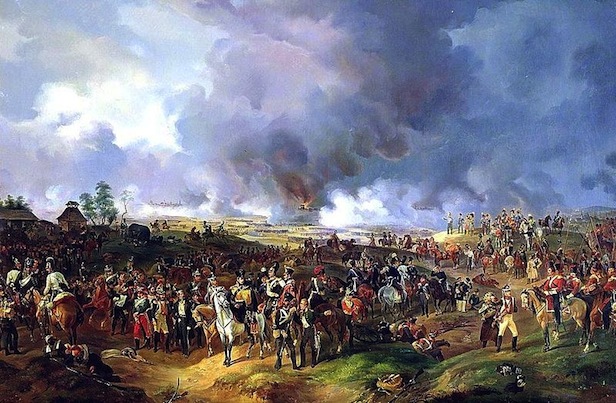 With over six hundred thousand troops involved, the Battle of Leipzig was the biggest engagement of manpower committed to a battle before World War I. It was fought for pride and empires, as Napoleon Bonaparte plunged Europe into total war to build his dynasty in the Germanic hinterland. Against him stood a collection of nations determined to resist his dictatorial will, including Prussia, Sweden, Russia and Austria in a grand coalition.
With over six hundred thousand troops involved, the Battle of Leipzig was the biggest engagement of manpower committed to a battle before World War I. It was fought for pride and empires, as Napoleon Bonaparte plunged Europe into total war to build his dynasty in the Germanic hinterland. Against him stood a collection of nations determined to resist his dictatorial will, including Prussia, Sweden, Russia and Austria in a grand coalition.
They met in the fields surrounding Leipzig for an epic showdown that killed over a hundred thousand men. Napoleon’s plan was simple: destroy the huge army the Coalition had assembled piecemeal, as he had done in previous campaigns through the unity of his Grande Armée. On the first day this appeared to be working, two bloody engagements against Austrian and Prussian troops resulted in Napoleon commanding the small town of Leipzig and much of the surrounding countryside. However, Napoleon failed to follow up on these victories and allowed the two armies to regroup and receive reinforcements from the the other armies of the Coalition nations. On 18 October the largest engagement ever fought in the 19th century took place.
Napoleon had retreated back to Leipzig and was determined to hold at all costs, but the French troops were now trapped and being hammered by endless Coalition infantry assaults. The only way out was to fight to a bridge leading westward to the safety of France. Seeing his men being slaughtered through the sheer weight of the Coalition’s numbers, Napoleon ordered a strategic retreat to the bridge which was now being threatened by the Coalition’s advance. In the ensuing panic a frightened French corporal blew the bridge up after he thought the Coalition was going to take it, just as the French soldiers were retreating over it. The explosion flew hundreds of hapless soldiers into the air and stranded thousands more in Leipzig. In the ensuing chaos, Napoleon made it to the western bank to safety and stayed long enough to watch his army completely disintegrate around him. It was the first time in his career that another army had inflicted such a defeat on him in the field.
This article is an extract from issue seven of All About History. To subscribe to the magazine click here
